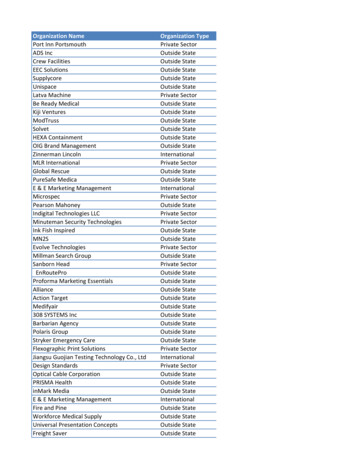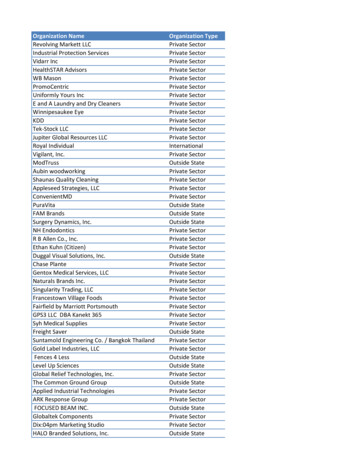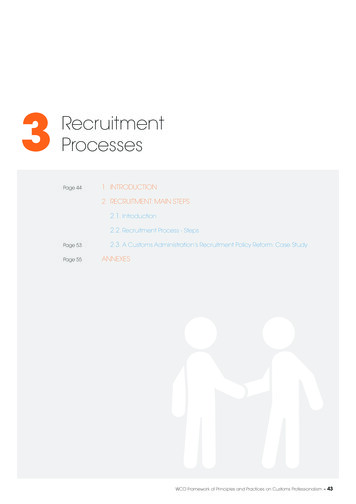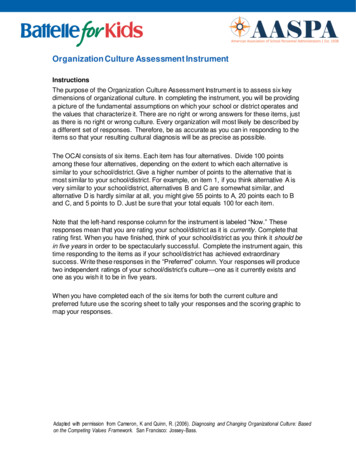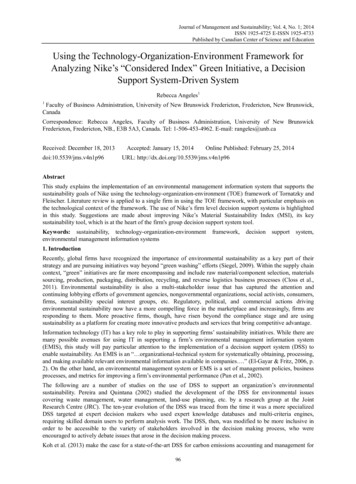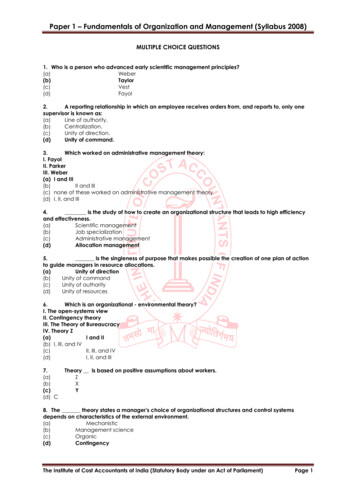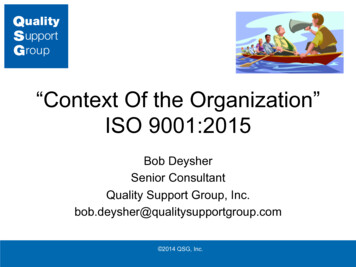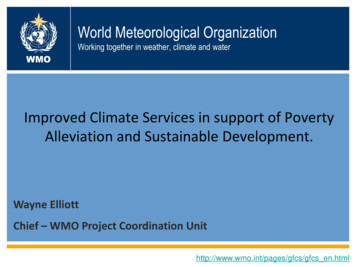
Transcription
World Meteorological OrganizationWorking together in weather, climate and waterWMOImproved Climate Services in support of PovertyAlleviation and Sustainable Development.Wayne ElliottChief – WMO Project Coordination Unithttp://www.wmo.int/pages/gfcs/gfcs en.html
A future in our hands Projected impacts on food production ofclimate change depend strongly on futuresocial and economic development. 11IPCC Fourth Assessment Report
World Meteorological OrganizationNational Meteorological andHydrological Service (NMHS)WMOAim is for the NMHS to be: an integral part of a nation’s resilience againstweather extremes and climate variability and change delivering high-quality weather and climateservices to a range of users
Infrastructural Capacities ofCountriesAs of Aug 2010 ability to provide Basic, Essential, Full and Advanced Climate Services.# of dvanced2010Less thanBasic0Infrastrucal Capacity Category
We need effective NMHSs The effect of climate on agriculture isrelated to variabilities in local climatesrather than in global climate patterns
NMHS’s: contribution todevelopment and the MDGsContribution through Weather and Climate Services:-Agro-meteorological services, food security e.g. fisheries, crops etc.-Water resource management-Energy (water, solar, wind, wave)-Prediction of Extreme Weather/Climatic Events (Storms, Drought,Floods)-Early Warning Systems: Protection of property and life-Adaptation to climate variability and change-Bio-meteorological services, e.g. malaria, meningitis forecasts-Air pollution services
GFCS – Global Framework forClimate ServicesA Framework for Climate Services that willbuild on existing NMHS capacities
Goals of the GFCSEnable better management of therisks of climate variability and change.Support adaptation to climate changeat all levels,through development andincorporation of science-basedclimate information and predictioninto planning, policy and practice.
GFCS PrioritiesIn the first four years the GFCS isgiving priority to: AgricultureDisaster risk reductionWaterHealth9
The principles of the GFCS
Areas of capacity development Human capacityInfrastructural capacityProcedural capacityInstitutional capacityCapacity development should: address both demand and supply sides be service oriented respond to users’ needs be balanced with climate science capabilities
WMOThank youWayne ElliottResource Mobilization OfficeWorld Meteorological OrganizationGeneva, SwitzerlandDirect telephone: 41 (0)22 7308378Email: welliott@wmo.int
Wayne Elliott Resource Mobilization Office World Meteorological Organization Geneva, Switzerland Direct telephone: 41 (0)22 7308378 Email: welliott@wmo.int
